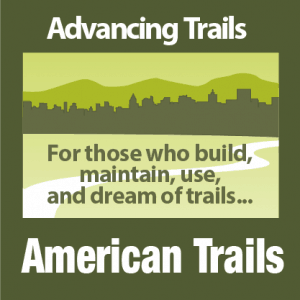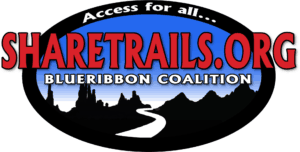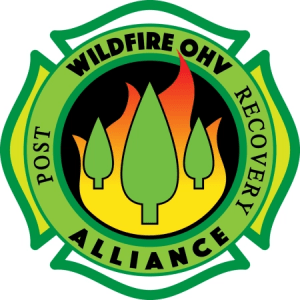218 Organizations Call on Congress to Provide Robust FY20 Funding for Trails (House)










The Honorable Betty McCollum
Chairman
House Appropriations Committee
Subcommittee on Interior, Environment, and Related Agencies
The Honorable David Joyce
Ranking Member
House Appropriations Committee
Subcommittee on the Interior, Environment and Related Agencies
March 29, 2019
Dear Chairman and Ranking Member:
On behalf of the thousands of diverse trail users our 218 collective organizations represent, we urge appropriators to adequately invest in our nation’s trails. Trails provide access to our public lands for hiking, biking, horseback riding, off-highway vehicles, and other motorized and non-motorized recreation. They are also the gateway to nearly every facet of outdoor recreation, including fishing, hunting, wildlife viewing, camping, and more. A failure to maintain and manage our nation’s trails stymies economic growth and access to healthy outdoor recreation.
Recent data from the Department of Commerce’s Bureau of Economic Analysis (BEA) calculated that outdoor recreation generated $734 billion in economic activity in 2016, surpassing other sectors such as agriculture, petroleum and coal. Outdoor recreation makes up 2.2% percent of U.S. GDP, supports 4.5 million jobs and is growing faster than the economy as a whole.[1]
According to the Outdoor Industry Association, trail centered activities directly generate over $594 billion[2] and nearly 3.5 million jobs.[3] On federally managed land, outdoor recreation contributes more than $64.6 billion to the national economy and supports more than 623,000 jobs annually.[4]
The management of our nation’s trails is largely supported by trail organizations and citizen volunteers who leverage government resources to maintain and expand our trails. On the National Trails System alone, since 1995, hundreds of thousands of citizen volunteers have contributed more than 19 million hours to build and maintain National Scenic and Historic Trails, and nonprofit trail organizations have contributed more than $200 million toward trail stewardship projects, a total value of $577.4 million.[5] This historical and ongoing public “sweat equity” investment has led to an increased recognition of the importance of adequate federal funding for our public lands and trails to maintain quality visitor experiences. It is our collective belief that Congress must restore the proper appropriated funding levels that have been cut over the decades that our federal land management agencies so desperately need. We maintain that current levels are inadequate but recognize the political realities of this challenge. Consequently, we strive to temper the recommendations to ensure at the very least current funding is maintained and not further reduced. However, we believe that restored and adequate funding is not only desperately needed but fully warranted.
We encourage the committee to adopt the following funding requests and report language, so the federal government can continue to benefit from private contributions and volunteer labor as well as provide inexpensive, healthy outdoor recreation options for your constituents:
Forest Service (USFS)
National Forest trails benefit everyone and receive increasing public use each year. Collectively, the National Forests provide 157,000 miles of trails for activities ranging from hiking, biking, horseback riding, off-highway vehicle usage, groomed winter trails for cross-country skiing and snowmobiling, and access points for “river trails.” Yet this trail system is increasingly stressed and maintenance cannot keep pace with the growing demand due to inadequate funding. The lack of maintenance threatens public access to National Forests and could endanger the public safety if funding does not keep pace with public visitation.
Action:
- Maintain Capital Improvement and Maintenance, Trails as individual funding line
- Justification: A dedicated line item in the Forest Service budget helps to ensure that Congress’ desire to help clear the maintenance backlog is met, and funds are not used for other purposes.
- Fund Capital Improvement and Maintenance, Trails budget at $100M to address trail maintenance backlog and implementation of the National Forest System Trail Stewardship Act.
- Justification: In 2016, Congress passed what was termed “the most bipartisan bill in Congress” -- the National Forest System Trails Stewardship Act -- to address its trail maintenance backlog, including doubling the output by volunteers and partners. But the USFS has yet to fully implement the Act due, in part, to a lack of resources and declining levels of staffing which hampers its ability to negotiate and oversee volunteer and cost-share agreements. The agency recently launched a 10-Year Sustainable Trails Stewardship Challenge and modest funding is needed to comprehensively address the well-documented trail maintenance backlog (GAO-13-618).
- Allocate Capital Improvement & Maintenance (CMTL) Trails funds for the National Trails Systems
-
- Report Language: “Congress expects the Forest Service to allocate $8.826 million from this account to support development and maintenance of the 5 national scenic and one national historic trail it administers and $1.3 million to manage parts of 16 national scenic and historic trails administered by the Park Service and the Bureau of Land Management that cross National Forests. The Forest Service will report to the Interior Appropriations Subcommittee on how the FY 2020 funds have been allocated and what has been accomplished with them and will include specific allocations for these trails in its FY 2021 Budget Request.”
-
- Justification: In FY19, as has been past practice for two decades, the USFS did not allocate specific Capital Improvement & Maintenance (CMTL) Trail funds for each of the six national scenic and historic trails that it administers, as well as portions of the 17 other trails that it manages within the national forests for FY 2019.
- Maintain Recreation, Heritage & Wilderness at FY19 enacted level of $261M
- Report Language: “Within the fund provided, $500,000 is made available to support infrastructure and trails development, and to build the capacity of local user groups and partnership organizations for all National Recreation Areas administered by the Forest Service established after 1997.”
-
- Justification: The National Forests and Grasslands provide a great diversity of outdoor recreational opportunities, connecting the American public with nature in an unmatched variety of settings and activities.
- Restore Legacy Roads & Trails as a separate line item and fund program at $50M
-
- Report Language: “For FY2020, Legacy Roads & Trails should be reinstated as a separate line item in the USFS budget with $50,000,00 distinctly designated for urgently needed road and trail repair, maintenance and storm-proofing, fish passage barrier removal, and road decommissioning, especially in areas where Forest Service roads may be contributing to water quality problems in streams and water bodies which support threatened, endangered or sensitive species or community water sources.”
-
- Justification: Legacy Roads & Trails funding is significantly impactful, improving more than 11,000 miles of trails and 5,000 miles of roads. Dedicated funding is necessary for continuing the success of this program. Legacy Roads and Trails contributes funding to support projects that include the maintenance and treatments of roads that also go a long way towards improving our watershed health.
National Park Service (NPS)
National Parks and the world-class experiences their 18,844 miles of trails provide are one of the most unifying forces in America. Well-maintained trails improve the quality of visitor experiences and enhance visitor safety. Yet the agency’s deferred maintenance has grown significantly under several Administrations and the associated reductions in adequate appropriations.
Action:
- Park Service Operations for the National Trails System must be maintained at a minimum of $16.5M
- Justification: The National Park Service has administrative responsibility for 23 National Scenic and Historic Trails established by Congress. Adequate funding is essential for keeping these popular trails accessible to the public.
- Maintain funding for the Rivers, Trails, & Conservation Assistance (RTCA) program at $10.033M
-
- Justification: The RTCA program brings the expertise of over a century of land management to the greater recreation community. When a community asks for assistance with a project, National Park Service staff provide free critical tools for success, on-location facilitation, and planning expertise, which draw from project experiences across the country and adapt best practices to a community's specific needs.
-
- Restore the Challenge Cost Share program, funding at $1.5M
- Justification: Challenge Cost share leverages private donations with public funding to maximize trail maintenance resources. This Program is intended to support specific National Park Service mission-related projects that align with goals of local project partners. These partnerships promote improved access and opportunities for outdoor recreation, environmental stewardship, and education in our National Parks, National Trails and/or Wild and Scenic Rivers.
- Restore funding for Volunteers in Parks programs funding at $8M
- Justification: Volunteers in Parks leverages private donation with public funding to maximize trail maintenance resources.
- Fund Visitor Services subactivity, Youth Partnership Programs, at $10.95M
- Justification: The Youth Partnership Program in part funds the Public Land Corps program, which provides education and work opportunities for men and women aged 16-30. The NPS utilizes non-profit youth serving organizations to perform critical natural and cultural resource conservation projects at NPS sites. Without funding, projects completed by youth crews through these programs would not be accomplished. These projects range from masonry apprenticeships on historic structures to Tribal land improvements; to engaging other youth through coordination of culturally-based workshops and outdoor recreation clubs.
Bureau of Land Management (BLM)
The BLM manages 13,468 miles of trails over 245 million surface acres in the United States—more than any other federal land management agency. Most of the country’s BLM-managed public land is located in 12 Western States, including Alaska, and contains a diversity of landscapes that often provide the public less structured but nonetheless diverse and superlative recreational opportunities.
BLM recreation resources and visitor services support strong local economies. More than 120 urban centers and thousands of rural towns are located within 25 miles of BLM lands.
Action:
- Fund National Conservation Lands at $84M
- Justification: National Conservation Lands funds enhance recreational access, conserve the Nation’s heritage and manage these nationally recognized resources.
- Fund National Conservation Lands- National Scenic Historic Trails, subactivity Recreation Resources Management at $9.9M
- Justification: Recreation Resources Management funding preserves and provides public access to and allows for the enjoyment of the 16 National Scenic and Historic trails across BLM managed land.
- Increase Challenge Cost Share program funding at $3M
- Justification: Challenge Cost Share funds leverage private donation for public benefit, to maximize funding for trail maintenance and construction. Recreation projects build trails, obliterate road and trails, and enhance visitor recreation experiences on public lands. Projects improve and stabilize Riparian areas and washed out bridges or walkways. Overall, projects also include support for environmental education, University research, and interactive youth initiatives based on the programs within the BLM.
U.S. Fish & Wildlife Service (FWS)
Located in every U.S. state and territory, and within an hour’s drive of nearly every major U.S. city, National Wildlife Refuges provide incredible opportunities for outdoor recreation, including hiking, hunting, fishing, birding, boating and nature photography across 2,100 miles of trails. More than 37,000 jobs are reliant on refuges.
Action:
- Maintain Refuge Visitor Services at $73.319M
- Justification: Refuge Visitor Services provides funding for trail maintenance across FWS managed land.
Land & Water Conservation Fund (LWCF)- Across All Agencies
Congress recently showed overwhelming bipartisan support for the Land and Water Conservation Fund (LWCF) when it permanently reauthorized the program in S. 47, the John D. Dingell, Jr. Conservation, Management, and Recreation Act. Building upon this support, the committee must ensure that full funding of the program is provided at the $900 million level.
Action:
- Fund LWCF at the $900M
- Justification: The LWCF has funded nearly 1,000 trail projects across the country and countless other recreation and conservation projects in thousands of communities in every state. It’s time for Congress to fulfill its promise to provide full funding to the LWCF.
- Include within this appropriation $33.4M for National Scenic and Historic Trails projects
- Justification: Many of the projects offer a unique opportunity to acquire lands that will help protect trails or close existing gaps between sections of these Congressionally-designated trails. Once land is acquired, volunteers and private funding stand ready to build/maintain the trails. This funding will protect 41 tracts along six national scenic and six national historic trails.
21st Century Conservation Service Corps (21CSC)- DOI, USDA (USFS), and Commerce (NOAA)
With the establishment of the 21st Century Conservation Service Corps (21CSC) as part of the Natural Resources Management Act of 2019, Congress recognized the need to address modern conservation, recreation, forestry, and infrastructure projects through cost-effective partnerships with Corps. We encourage you to continue this focus and make the additional investments necessary to carry its intent forward and put more young adults and recent veterans to work on the thousands of unmet needs on our public lands.
Action:
- Conservation Corps Report Language
- Report Language: “The Secretary of the Interior and the Secretary of Agriculture are encouraged to utilize, where practicable, Conservation Corps programs like the Public Lands Corps, 21st Century Conservation Service Corps, other related partnerships with Federal, State, local, tribal or non-profit groups that serve young adults and veterans.”
We look forward to working with Congress to fulfill these requests to protect, preserve, and maintain trails. For additional information please contact:
Tyler Ray, American Hiking Society, tray@americanhiking.org;
Steve Salisbury, American Motorcyclist Association, SSalisbury@ama-cycle.org;
Mike Passo, American Trails, mikepasso@americantrails.org;
Randy Rasmussen, Back Country Horsemen of America, WildernessAdvisor@bcha.org;
Spencer Gilbert, Blue Ribbon Coalition/Sharetrails, brspencer@sharetrails.org;
Josh Tuohy, The Corps Network, jtuohy@corpsnetwork.org;
Aaron Clark, International Mountain Bicycling Association, aaron.clark@imba.com;
Scott Schloegel, Motorcycle Industry Council, sschloegel@mic.org;
Gary Werner, Partnership for the National Trails System, gary@pnts.org;
Don Amador, Post Wildfire OHV Recovery Alliance, damador@cwo.com
Sincerely,
Accessible Trails Foundation
AccessWorks, Inc
Accomack-Northampton Planning District Commission
Action Coalition for Equestrians
Adirondack Rail Trail Advocates
Ala Kahakai Trail Association
Alaska State Parks
Alaska Trails
Almanor Recreation and Park District
American Conservation Experience
American Discovery Trail Society
American Endurance Ride Conference
American Hiking Society
American Motorcyclist Association
American Trails
Americans for Responsible Recreational Access
Anza Area Trail Town
Arizona Trail Association
Arizona Wilderness Coalition
Back Country Horsemen of America
Back Country Horsemen of America- 3 Rivers Chapter, MT
Back Country Horsemen of America- Green River, KY
Back Country Horsemen of Michigan-Pigeon River and Beyond
Back Country Horsemen of America- First Coast, FL
Back Country Horsemen of America- Fort Harrod, KY
Back Country Horsemen of America- Golden Horseshoe Chapter, VA
Back Country Horsemen of America- Kentucky
Back Country Horsemen of America- Minnesota
Back Country Horsemen of America- Northern Colorado
Back Country Horsemen of America- Northwest Montana
Back Country Horsemen of America- Trout Creek, MT
Back Country Horsemen of America-Utah
Back Country Horsemen of Arizona
Back Country Horsemen of Colorado
Back Country Horsemen of Montana
Back Country Horsemen of North Georgia
Back Country Horsemen of Oregon
Back Country Horsemen of the Virginia Highlands
Back Country Horsemen of Utah- San Rafeal
Back Country Horsemen of Washington
East Slope Back Country Horsemen-MT
Front Range Back Country Horsemen-CO
Gallatin Valley Back Country Horsemen- MT
Hoosier Back Country Horsemen of America- IN
Mesa Verde Back Country Horsemen-CO
Rocky Mt Back Country Horsemen-CO
San Juan Back Country Horsemen- CO
Sarasota Back Country Horsemen- FL
Selway-Pintler Wilderness Back Country Horsemen- MT
Wyoming Back Country Horsemen of America
Zumbro Bottoms Back Country Horsemen of Minnesota
Bay Area Barns and Trails
Bent's Fort Chapter of the Santa Fe Trail Association
Bike Walk Montana
Bike-Walk Alliance of NH
Blue Ribbon Coalition/Sharetrails
Borough of Gibbsboro
C&O Canal Association
Cache County
Canalway Partners
Cape Horn Conservancy
Cedar Valley Cyclists
Central Oregon Trail Alliance
Champlain Area Trails
Chelan-Douglas Land Trust
Chesapeake Conservancy
Choose Outdoors
City of Westminster
Colorado Plateau Mountain Bike Trail Assoc, Inc. (COPMOBA)
Community Training Works, Inc.
Concerned Coastal Planners
Concerned Off-Road Bicyclists Association
Connecticut Forest & Park Association
Conservation Works LLC
Conserving Carolina
Continental Divide Trail Coalition
County Line Riders of Catalina
The Corps Network
Crow Wing County Snowmobile Trails Association
Dan River Basin Association
Delaware Valley Trail Riders
E mau Na Ala hele
East Coast Enduro Association, Inc.
El Camino Real de los Tejas National Historic Trail Association
Enchanted Circle Trails Associaiton
Evansville Trails Coalition
Fitchburg Trails Vision Committee
Forest Fire Lookout Association - NC Chapter
ForeverGreen Trails
Friend of the Tonto National Forest
Friends of Chimney Rock State Park
Friends of Sholan Farms
Friends of the Hennepin Canal
Friends of the Keystone Arches, Inc.
Friends of the Mississippi Blufflands Trail
Friends of the Mountains-to-Sea Trail
Friends of Van Cortlandt Park
Friends of Weiser River Trail Inc
Gallup Adventure & Beyond
Georgia Trails Alliance
Grand Mesa Jeep Club
Green Hills Trail Association
Green Marble Enduro Riders
Greenway Action Advisory Committee
Harlem Valley Rail Trail Association, Inc
Hawaii Department of Land and Natural Resources, Division of Forestry & Wildlife
The Hickstead Hillbillies
Highlands Plateau Greenway
Hilltop Community Resources
Hoosier Hikers Council
Hut2hut.info
Ice Age Trail Alliance, Inc
Iditarod Historic Trail Alliance
International Mountain Bicycling Association
Iron Ore Heritage Recreation Authority
Judith Basin Back Country Horsemen
Lake Champlain Committee
Leominster Trail Stewards
Lewis and Clark Trust, Inc.
Lewis County Recreation, Forestry and Parks
Linn County Conservation Board
Lobos Motorcycle Club
Mahoosuc Land Trust
Mahoosuc Pathways, Inc.
Maine Recreation and Parks Association
Maine Trail Riders Association, Inc.
Maricopa Trail and Park Foundation
Marin Municipal Water District
Meramec Valley Trail Association
Michiana Watershed
Middlesex County Conservation Corps
Milwaukee Riverkeeper
Monmouth County Park System
Monogahela Outdoor Volunteers
Montana Trails Coalition
Mormon Trails Association
Motorcycle Industry Council
MTB Missoula
National Coast Trails Association
National Washington-Rochambeau Revolutionary Route Association
Nature Legacies
Nevada All State Trail Riders
Nevada Department of Conservation and Natural Resources
New Jersey Recreation and Park Association
New Jersey Youth Corps of Phillipsburg
New Mexico Horse Council
New Mexico Sportsmen
New River Alliance of Climbers
New York-New Jersey Trail Conference
Newtown Parks and Recreation
Nickel Plate Trail Inc
North Country Trail Association
North County Land Trust
Oahu Na Ala Hele
Ocean County Competition Riders
Oregon Equestrian Trails
Oregon Horse Council
Oregon Natural Desert Association
Oregon-California Trails Association
Overmountain Victory Trail Association
Ozark Trail Association
Pacific Crest Trail Association
Pacific Northwest Trail Association
Park County Pedalers
Parks & Trails Council of Minnesota
Partnership for the National Trails System
Pennsylvania Parks and Forests Foundation
Pennsylvania Recreation and Park Society
Pikes Peak Outdoor Recreation Alliance
Pine Barrens Adventure Camp LLC
Pioneer Bridges
Post Wildfire OHV Recovery Alliance
Prickly Pear Land Trust
Public Lands Alliance
Rail-Trail Council of NEPA, Inc
Recreational Off-Highway Vehicle Association (ROHVA)
Red Rock Motorsports Club, Inc.
Rock County Multi Use Trail Group
Rock River Trail
Rocky Mountain Field Institute
San Luis Valley Great Outdoors
Santa Fe Trail Association
Shenandoah Valley Bicycle Coalition
South Jersey Enduro Riders, Inc.
South Penn Enduro Riders Inc.
Southbridge Trails Committee
Southeast Minnesota Back Country Horsemen
Southern Off-Road Bicycle Association
Specialty Vehicle Institute of America (SVIA)
Steffey Trail Connections
Sugar Land Parks and Recreation Dept.
Sunflower Rail-Trails Conservancy
Superior Hiking Trail Association
Tahoe Rim Trail Association
Tahoe-Pyramid Trail
Tidewater Appalachian Trail Club
Torrington Trail Network
Trail Boss USA
Trail Facts
Trail of Tears Association
Trails and Open Space Coalition
Trails Inspire, LLC
Trails Utah
Tri County Sportsmen
Upper Valley Trails Alliance
Urbana Park District
Valley Center Trails Association
Velo Amis
Vermont Woodlands Association
Virginia Trail Alliance
Volunteers for Outdoor Colorado
Washington Area Bicyclist Association (WABA)
Washington Trails Association
The Wilderness Society
Wildlands Restoration Volunteers
Wisconsin Horse Council - Trails
Wyoming Pathways
Yellowstone River Parks Association
[1] Bureau of Economic Analysis, Outdoor Recreation, https://www.bea.gov/data/special-topics/outdoor-recreation (last visited March 25, 2019).
[2] OUTDOOR INDUSTRY ASSOCIATION, OUTDOOR RECREATION ECONOMY 18 (2017), available at https://outdoorindustry.org/wp-content/uploads/2017/04/OIA_RecEconomy_FINAL_Single.pdf. Trail centered activities generated $594,311,835,880 from including retail spending, salaries, and federal and state taxes.
[3] Id. Trail centered activities create 3,476,845 jobs.
[4] OUTDOOR INDUSTRY ASSOCIATION, OUTDOOR RECREATION ECONOMY 15 (2017), available at https://outdoorindustry.org/wp-content/uploads/2017/04/OIA_RecEconomy_FINAL_Single.pdf; “Forest Service Makes it Easier for Visitors to Enjoy National Forests and Grasslands.” U.S. Forest Service, https://www.fs.fed.us/news/releases/forest-service-makes-it-easier-visitors-enjoy-national-forests-and-grasslands.
[5] Partnership for the National Trails System, Contributions Sustaining the National Scenic and Historic Trails (2018), http://pnts.org/new/partnership-for-the-national-trails-system-gold-sheet-of-volunteer-contributions-in-2018/.
